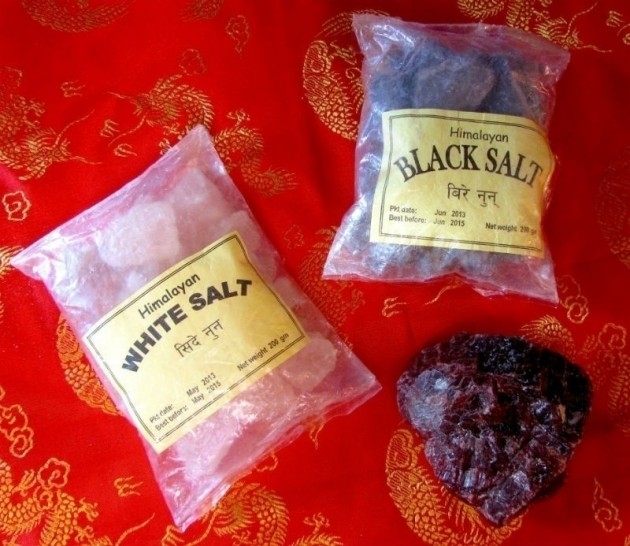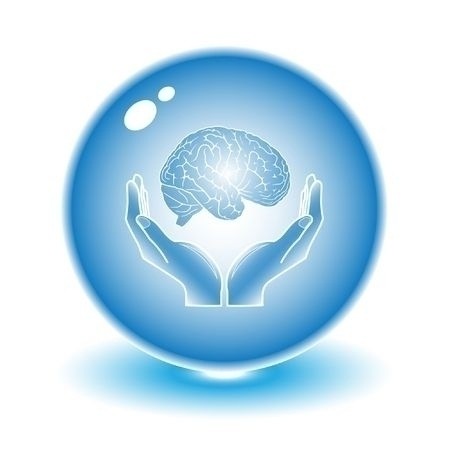Candidiasis is an infection with a fungus of the Candida strain, usually limited to the skin and mucous membranes,
but sometimes is systemic and life-threatening.
Candida albicans are a single cell yeast/fungus that is found in practically 100% of the population. It lives on the mucous membranes of the body, the digestive/intestinal tract, vagina and the skin. MOST IMPORTANT, in the proper environment, Candida albicans will co-exist with no negative side effects. So to understand, diagnose, and treat "candidemia," we must understand what causes the Candida albicans relationship in our bodies to change from a saprophytic to a parasitic one.
Most researchers agree that the pathogenesis of "candidemia" is primarily due to an altered/improper balance
of gut microflora. This is a result of primarily: 1) the indiscriminate use of antibiotics in both people and animals/ food, 2) high beef, fat, sugar, and low fiber diets, 3) use of birth control pills, cortisone, cortisone-like drugs and immunosuppressant drugs.
As a result we end up with a drastic imbalance of the microecology in our body. This allows the Candida yeast and other "enemies" to over-populate, convert into a fungal form which produces some 70 neurotoxins, and irritate the gut lining to the point of allowing macromolecular absorption of many things not designed to enter into the circulatory system including the Candida albicans, toxins, and potential allergens. It is therefore extremely important to identify and implement a program designed to approach this problem.
Candida Identification
1. Dr. Crook's symptom questionnaires for candidemia are excellent indicators.
2. The Candida antibody blood test along with the cytoplasmic antigen-antibody test have been utilized
by many practitioners, but appear to have approximately 60% error range.
3. The dark-field identification of yeast forms has a high degree of accuracy/reliability.
4. The applied kinesiology identification correlates well with dark-field identification and Dr. Crook's symptom questionnaires.
Common Signals of Candida Overgrowth
Central Nervous System: Headache, Depression, Lethargy, Agitation, Hyperirritability, Memory loss, Inability to Concentrate
Gastrointestinal Tract: Chronic heartburn, Gastritis, Colitis, Distension/bloating, Gas, Constipation, Diarrhea
Genitourinary Tract: Yeast vaginitis, Irregular menses, Cramping, Endometriosis, Cystitis, Urethritis, Kidney/bladder Infections
Generalized: Fatigue, Joint pain/stiffness, Cold hands/feet, Increased body hair, Numbness/tingling, Food cravings, Loss of libido
"Allergic" Symptoms: Hay fever, Sinusitis, Earaches, Hives, Asthma, Food/chemical Sensitivities
Candida Treatment
The standard medical approach to candidemia has been aptly termed "the silver bullet approach," referring to the idea of finding something that "kills off" only Candida albicans, which is not a very logical approach. If you COULD kill them off completely, they would just come back as soon as treatment would stop. Since they are found Practically Everywhere it is essentially impossible to prevent their re-entry into the body.
A more logical focus of nutritional treatment protocols should be to create an environment which keeps this naturally occurring yeast form at an appropriate saprophytic population concentration as well as keeping it in its yeast form by preventing its conversion to the mycelial/fungal form of the organism. The treatment protocols outlined are designed to accomplish just that goal.
You will also notice a recommended diet on called the Candida Albicans Nutrition Guide which can be used to reduce yeast overgrowth and enhance immune function from a dietary approach.
Suggested Nutritional Supplementation
Candida Relief Program - 1-2 times daily contains the following products:
- Caproyl - caprylic acid from coconut oil and oleic acid from olive oil (1 pint lasts 7 weeks)
- Psyllium Cleanser - powdered Plantago ovata [blond psyllium seed] plus husks (10 oz lasts 6 weeks)
- Bentonite Magma - distilled water and bentonite (1 quart lasts 9 weeks)
- Ultra Flora IB - 60 billion organisms per capsule (1 bottle lasts 4 weeks)
One dose is mixed as follows
- 6 oz. water + 2 oz. unsweetened juice
- 2 teaspoons Caproyl
- 1 well-rounded teaspoon Psyllium Cleanser
- 1 Tablespoon Bentonite
- 1 capsule Ultra Flora IB (open capsule and mix in)
Combine in a jar, screw on lid and shake vigorously for 10 to 15 seconds. Drink immediately. Take 1/2 hour before breakfast (on empty stomach). Drink 6 to 8 glasses of liquid daily to keep the psyllium gel moving through the intestinal tract.
NOTE: In conjunction with the Candida Relief Program, start with CandiBactin-AR. Recommendations: Take one capsule with eight ounces of water three times daily after meals. Take for eight weeks and repeat cycle if necessary.
Preventive Maintenance (indefinitely)
- Ultra Flora Plus DF Capsules - 2 capsules daily before meals.
Dairy free Probiotic Nutrition with Bifidobacteria & NCFM Acidophilus
Dietary Suggestions
- Candida Albicans Nutrition Guide (see next page)
Oral Thrush (Infant)
- D-83-2 (Candida Albicans Homeopathic 12X)-3-5 drops in mouth 4-6 times daily during acute
stage.
- UltraFlora Plus DF Powder -1/4 tsp. in lukewarm water, juice, or formula three times daily.
NOTE: Do not microwave.
- Caproyl (Liquid caprylic acid) - Rub the anti-yeast/fungus liquid on the infant's gum and infected areas 3-4 times daily.
Candida Albicans Dietary Guide
|
Food |
Permitted Foods |
Foods Not Permitted |
|
Sweets |
Unpasteurized honey, unsulfurated black-strap molasses, raw sugar sorghum by themselves or used as sweeteners. NOTE: Use in moderation! |
Refined sugar, candy, chocolate. |
|
Fruits |
Fresh fruits only: apples, pears, apricots, bananas, cherries, grapes, guava, currants, nectarines, papaya, peaches, plums, quince, tangerines, avocados, ripe pineapple. NOTE: Fruits should be limited to a maximum of two per day. |
Canned fruit, oranges, melons, dried or candied fruits. |
|
Juices |
Only fresh juices. May be selected from list of vegetables permitted, including the following green leaves: chicory, endive, escarole lettuce, Swiss chard, and watercress. |
Canned juices, and juices with artificial coloring or sweetening. |
|
Beverages |
Mineral water, herb tea, mint tea, papaya tea, fresh vegetable juices. |
Alcohol, coffee, tea, soft drinks containing preservatives. |
|
Breads |
Rye, whole wheat, soya, bran, whole grain stone-ground breads. NOTE: Limit to a maximum of two slices per day. |
White bread, bleached flour products. |
|
Cereals |
Buckwheat, corn meal, cracked wheat, millet, oatmeal, sesame, grits. |
Refined, bleached flour, and sugar coated cereals. |
|
Oils |
Cold pressed oils, preferably flaxseed, safflower, canola or soya lecithin spread. |
Shortening, margarine, saturated oils and fats. |
|
Nuts |
Fresh, raw nuts such as almonds, pecans, cashews, Brazil nuts, and walnuts (peanuts very occasionally). |
Roasted and salted nuts. No peanuts if patient has digestive or colon related problems. |
|
Vegetables |
Raw or lightly cooked: artichokes, asparagus, carrots, cauliflower, celery, chives, corn, egg plant, endives, green leeks, green peas, green pepper, leeks, lentils, lima beans, potatoes, radishes, spinach, squash, tomatoes, wax beans, yams. Any vegetables listed under salads. NOTE: Washing vegetables in a 10% Clorox solution and rinsing well will reduce microbial growth. |
All canned vegetables. |
|
Potatoes |
Baked, boiled, or mashed. May substitute brown rice or corn. |
French fried, chips, white rice. |
|
Salads |
The following raw vegetables shredded or finely chopped, separated or mixed: broccoli, Brussels sprouts, carrots, cauliflower, celery, chicory, green pepper, lettuce, onions, radishes, Swiss chard, tomatoes, turnips, and watercress. |
Any other. No white or cider vinegar. |
|
Seasonings |
Chives, garlic, onion, parsley, laurel, marjoram, sage, thyme, savory, cumin, oregano, salt substitutes such as Co-salt or other potassium salt, sea salt, kelp salt, and herbs. |
Spices, pepper, paprika, sodium salt. No white or cider vinegar. |
|
Soups |
Vegetable soup. Barley, brown rice, or millet can be added. |
Canned and creamed soup, fat stock, consomme. |
Yeast Questionnaire - Adult
In Section A circle the score for each YES answer. For Sections
B and C score as indicated. Record total scores at the end of the questionnaire. Add the totals to get your GRAND TOTAL SCORE.
Section A - History
1. Have you taken tetracyclines (Sumycin, Panmycin, Vibra- mycin, Minocin, etc.) or other antibiotics for acne for one
month or longer? ..........................................................................35
2. Have you ever taken other "broad spectrum" antibiotics for urinary, respiratory, or other infections for two months or longer, or in shorter courses four or more times in a
one year period? ...........................................................................35
3. Have you ever taken a "broad spectrum" antibiotic drug? .............6
4. Have you ever been bothered by persistent prostatitis,
vaginitis, or other reproductive organ problems?..........................25
5. Have you been pregnant: two or more times? ...............................5
1 time? ............................................................................................3
6. Have you taken birth control pills for more than two years? ........15
For six months to two years? .........................................................8
7. Have you taken prednisone, Decadron, or other cortisone-
type drugs for more than two weeks? ...........................................15
For two weeks or less? ..................................................................6
8. Does exposure to perfumes, insecticides, fabric shop
odors, and other chemicals provoke:
Moderate to severe symptoms? ...................................................20
Mild symptoms? .............................................................................5
9. Are symptoms worse on damp, muggy days or in moldy
places? ........................................................................................20
10. Have you had athlete's foot, ring worm, "jock itch," or
other chronic fungous infections of the skin or nails?
Severe or persistent......................................................................20
Mild to moderate? .........................................................................10
11. Do you crave sugar?.....................................................................10
12. Do you crave breads?...................................................................10
13. Do you crave alcoholic beverages? .............................................10
14. Does tobacco smoke really bother you? ......................................10
Section B - Major Symptoms
Enter the appropriate score for each symptom below.
If a symptom is occasional or mild Score 3 points
If a symptom is frequent or moderately severe Score 6 points
If a symptom is severe or disabling Score 9 points
1. Fatigue or lethargy .....................................................
2. Feeling of being "drained" ..........................................
3. Poor memory..............................................................
4. Feeling "spacey" or "unreal" .......................................
5. Depression .................................................................
6. Numbness, burning, or tingling...................................
7. Muscle aches .............................................................
8. Muscle weakness or paralysis....................................
9. Joint pain ....................................................................
10. Abdominal pain...........................................................
11. Constipation ...............................................................
12. Diarrhea......................................................................
13. Bloating ......................................................................
14. Troublesome vaginal discharge .................................
15. Persistent vaginal burning or itching ..........................
16. Prostatitis....................................................................
17. Impotence...................................................................
18. Loss of sexual desire..................................................
19. Endometriosis.............................................................
20. Cramps and/or other menstrual irregularities .............
21. Premenstrual tension .................................................
22. Spots in front of eyes..................................................
23. Erratic vision...............................................................
Section C - Other Symptoms
Enter the appropriate score for each symptom below.
If a symptom is occasional or mild Score 1 points
If a symptom is frequent or moderately severe Score 2 points
If a symptom is severe or disabling Score 3 points
1. Drowsiness ..............................................................
2. Irritability or jitteriness ..............................................
3. Incoordination ..........................................................
4. Inability to concentrate.............................................
5. Frequent mood swings ............................................
6. Headache ................................................................
7. Dizziness/loss of balance ........................................
8. Pressure above ears, feeling of head tingling .........
9. Itching ......................................................................
10. Other rashes ............................................................
11. Heartburn.................................................................
12. Indigestion ...............................................................
13. Belching and intestinal gas ......................................
14. Mucus in stools ........................................................
15. Hemorrhoids ...........................................................
16. Dry mouth ................................................................
17. Rash or blisters in mouth .........................................
18. Bad breath ...............................................................
19. Joint swelling or arthritis ..........................................
20. Nasal congestion or discharge ................................
21. Postnasal drip .........................................................
22. Nasal itching ............................................................
23. Sore or dry throat.....................................................
24. Cough ......................................................................
25. Pain or tightness in chest ........................................
26. Wheezing or shortness of breath.............................
27. Urgency or urinary frequency .................................
28. Burning on urination ................................................
29. Failing vision ............................................................
30. Burning or tearing of eyes .......................................
31. Recurrent infections or fluid in ears .........................
32. Ear pain or deafness ...............................................
Scores: Section A Section B Section C
GRAND TOTAL SCORE
The GRAND TOTAL SCORE will help determine if your health problems are yeast connected. Scores in women will run higher because more questions apply only to women than to men.
Yeast connected health problems are almost CERTAINLY PRESENT in
women with scores over 180, and in men with scores over 140.
Yeast connected problems are PROBABLY PRESENT in women with scores over 120 and in men with scores over 90.
Yeast connected problems are POSSIBLY PRESENT in women with scores over 60 and in men with scores over 40.
Scores less than 60 in women and 40 in men: yeasts are less apt to cause health problems.
Yeast Questionnaire - Children
Circle the appropriate point score for questions you answer "yes." Total your score
and record it in the box at the end of the questionnaire.
1. During the two years before your child was born, were you bothered by recurrent vaginitis, menstrual irregularities, pre- menstrual tension, fatigue, headache, depression, digestive disorders, or "feeling bad all over"?
.............................................................................................. 30
2. Was your child bothered by thrush? (Score 10 if mild, 20 if severe or persistent.)
....................................................................................... 10 20
3. Was your child bothered by frequent diaper rashes in infancy? (Score 10 if mild, 20 if severe or persistent.)
....................................................................................... 10 20
4. During infancy, was your child bothered by colic and irritabil-
ity lasting over 3 months? (Score 10 if mild, 20 if moderate or severe.)
....................................................................................... 10 20
5. Are your child's symptoms worse on damp days or in damp or
moldy places?
.............................................................................................. 20
6. Has your child been bothered by recurrent or persistent "ath- lete's foot" or chronic fungous infections of his skin or nails?
.............................................................................................. 30
7. Has your child been bothered by recurrent hives, eczema, or
other skin problems?
.............................................................................................. 10
8. Has your child received:
(A) 4 or more courses of antibiotic drugs during the past year? Or has he received continuous "prophy-lactic" courses of anti- biotic drugs?
............................................................................................ 60 (B) 8 or more courses of "broad-spectrum" antibiotics (i.e. Amoxicillin, Keflex, Septra, Bactrim, or Ceclor) during the past
3 years?
.............................................................................................. 30
9. Has your child experienced recurrent ear problems?
.............................................................................................. 10
10. Has your child had tubes inserted in his ears?
.............................................................................................. 10
11. Has your child been labeled "hyperactive"? (Score 10 if mild,
20 if moderate or severe.)
....................................................................................... 10 20
12. Is your child bothered by learning problems (even though his early developmental history was normal?
.............................................................................................. 10
13. Does your child have a short attention span?
.............................................................................................. 10
14. Is your child persistently irritable, unhappy, and hard to please?
.............................................................................................. 10
15. Has your child been bothered by persistent or recurrent diges- tive problems, including constipation, diarrhea, bloating, exces- sive gas? (Score 10 if mild, 20 if moderate, 30 if severe.)
................................................................................ 10 20 30
16. Has your child been bothered by persistent nasal congestion, cough, and/or wheezing?
.............................................................................................. 10
17. Is your child unusually tired or unhappy or depressed? (Score
10 if mild, 20 if severe.)
....................................................................................... 10 20
18. Has your child been bothered by recurrent headaches, abdom- inal pain, or muscle aches? (Score 10 if mild, 20 if severe.)
....................................................................................... 10 20
19. Does your child crave sweets?
.............................................................................................. 10
20. Do you feel that your child isn't well, yet diagnostic tests and studies haven't revealed the cause?
.............................................................................................. 10
GRAND TOTAL SCORE
Yeasts POSSIBLY play a role in causing health problems in children
with scores of 60 or more.
Yeasts PROBABLY play a role in causing health problems in children
with scores of 100 or more.
Yeasts ALMOST CERTAINLY play a role in causing health problems
in children with scores of 140 or more.
Copyright 1984, William G. Crook, M.D.






